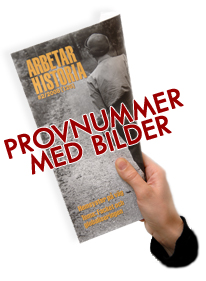Abstracts for issue no 131
American deserters and Vietnam protests: GI- agitation in Europe / Paul Benedikt Glatz
During the Vietnam War, American soldiers stationed in Europe were targeted by desertion- and mobilizing campaigns, particularly in West Germany and West Berlin. The traditional image of the deserter as coward or turncoat was fundamentally challenged when fugitive American soldiers publicly spoke out against the war in Vietnam, making their step an act of political protest and true patriotism. Americans who had deserted found sanctuary in France and Sweden. Deserters in exile, but also GIs inside the military, formed their own protest groups, supported by European antiwar activists. This article examines this example of practical solidarity of Europeans with the “other America” and of the transnational dimension of protest around “1968.” It reconstructs how this protest strategy developed and analyzes it regarding transnational cooperation, concretization, and synchronization of protest activities.
The Swedish Maoist movement and the Sino-Albanian split / Kalle Holmqvist
This article explores how the Swedish Maoist movement reacted on the Sino-Albanian split in the late 70s.
The Swedish Maoist movement was founded mainly as a result of the split between the governing communist parties in the Soviet Union and in China. The Swedish parties Kfml (later Skp) and Kfml(r) (later Kpml(r)) both emerged from those who took side for China and Albania against the Soviet Union.
When the split between China and Albania became official in 1977-78 the two parties chose different ways to handle this new situation. Skp continued to support China and even condemned the Stalinist regime in Albania as trotskyists (”The Albanian leaders follows a new Trotskyist course”). Kpml(r) on the other hand remained rather pro-Albanian. They rejected the new political course in China after Mao Zedong´s death. But soon they also became more critical to their own old Maoist heritage and developed a more Soviet-friendly view.
With international solidarity they wanted to liberate the world / Kasper Braskén
The aim of the article is to discuss the social praxis of international solidarity from a historical perspective. What did it mean to fight for international solidarity, who where the people behind the struggle and, foremost, how did they perceive and employ the concept of international solidarity? The main focus of my study is the transnational solidarity organisation Internationale Arbeiterhilfe (IAH) that during the interwar era (1921-1935) strove to extend concrete aid to workers in despair and to unite the entire working class and its sympathisers through the ideal of international solidarity in Weimar Germany. In confidence the IAH’s communist leader Willi Münzenberg upheld intensive contact with the Communist International (Comintern) in Moscow that supported the IAH’s activities. The research is based on extensive source material from the German Bundesarchiv (SAPMO-BArch) and the Russian State Archive of Social and Political History (RGASPI).
“To sort out among the workers” - Employers constructed community in Finland during the inter-war era / Matias Kaihovirta
This article explores the constructed masculine community in a industrial manufacturing company - Fiskars AB OY- in Finland during the inter-war era 1918-1939. The article presents the personal-politics from a employers perspective. In order to restore peace on the labour-market and minimize the influence from labour-unions and socialist labour-movement, Finnish employers strived to create a good “workers-friendly” atmosphere within the companies. With the negative experiences from the Civil War 1918 (between bourgeois “whites” and socialist “reds”, where the latter lost) employers saw single, young males as a threat to the peace on labour-market, while the married family-man was the stable and prefereble employee. Employers saw that so called red workers had a negative influence on the steady “white” workers and strived to discipline the “reds” while the white worker earned social benefits from the employer. So called “voluntary” company-initiated associations for the employees was founded in the Fiskars company, they were constructed as male-oriented (homosocial) gatherings, e.g. the company´s “Voluntary Firebrigade” had a function to include stable workers and exclude so called trouble-makers. The “voluntary” associations had also a function to construct a imagined community among the employees over the class-boundaries, which was a central part in Finnish employers politics during the inter-war era.
Head of Household, Wage Work and Professional Skill. Gender and the Concept of Work in Finnish Social Policy / Hanna Lindberg
This article focuses on gender and the concept of work in Finnish academic social policy, by analyzing texts of Heikki Waris (1901-1989). Social policy was established as an academic subject in 1945 at the University of Helsinki. Heikki Waris was the first professor and developed social policy as an academic field. Gender was not a main topic of interest for Waris and feminist research has criticised Waris and his contemporaries for constructing the male wage worker as an implicit social political norm. The idea of the implicit male norm is the departure point for this article and it examines how notions of work and labour were closely connected to ideas of femininity and masculinity, and also to differences among men.


